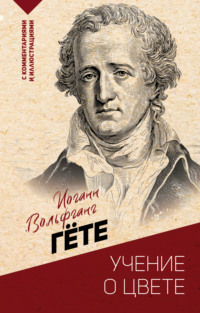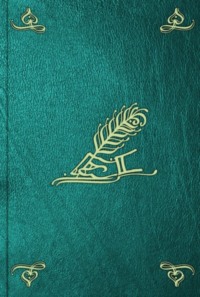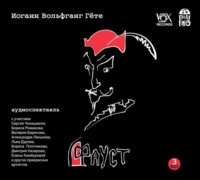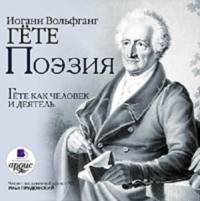 полная версия
полная версияAutobiography: Truth and Fiction Relating to My Life
Another more singular ceremony, by which the people were excited in broad daylight, was the Piper's Court (/Pfeifergericht/). It commemorated those early times when important larger trading-towns endeavored, if not to abolish tolls altogether, at least to bring about a reduction of them, as they increased in proportion with trade and industry. They were allowed this privilege by the emperor, who needed their aid, when it was in his power to grant it, but commonly only for one year; so that it had to be annually renewed. This was effected by means of symbolical gifts, which were presented before the opening of St. Bartholomew's Fair to the imperial magistrate (/Schultheiss/), who might have sometimes been the chief toll-gatherer; and, for the sake of a more imposing show, the gifts were offered when he was sitting in full court with the /Schöffen/. But when the chief magistrate afterwards came to be no longer appointed by the emperor, and was elected by the city itself, he still retained these privileges; and thus both the immunities of the cities from toll, and the ceremonies by which the representatives from Worms, Nuremberg, and old Bamberg, once acknowledged the ancient favor, had come down to our times. The day before Lady Day, an open court was proclaimed. In an enclosed space in the great Imperial Hall, the Schöffen took their elevated seats; a step higher, sat the /Schultheiss/ in the midst of them; while below, on the right hand, were the procurators of both parties invested with plenipotentiary powers. The /Actuarius/ begins to read aloud the weighty judgments reserved for this day: the lawyers demand copies, appeal, or do whatever else seems necessary. All at once a singular sort of music announces, if we may so speak, the advent of former centuries. It proceeds from three pipers, one of whom plays an old /shawm/, another a /sackbut/, and the third a /pommer/, or oboe. They wear blue mantles trimmed with gold, having the notes made fast to their sleeves, and their heads covered. Having thus left their inn at ten o'clock, followed by the deputies and their attendants, and stared at by all, natives and strangers, they enter the hall. The law proceedings are stayed, the pipers and their train halt before the railing, the deputy steps in and stations himself in front of the /Schultheiss/. The emblematic presents, which were required to be precisely the same as in the old precedents, consisted commonly of the staple wares of the city offering them. Pepper passed, as it were, for every thing else; and, even on this occasion, the deputy brought a handsomely turned wooden goblet filled with pepper. Upon it lay a pair of gloves, curiously slashed, stitched, and tasselled with silk, – a token of a favor granted and received, – such as the emperor himself made use of in certain cases. Along with this was a while staff, which in former times could not easily be dispensed with in judicial proceedings. Some small pieces of silver money were added: and the city of Worms brought an old felt hat, which was always redeemed again; so that the same one had been a witness of these ceremonies for many years.
After the deputy had made his address, handed over his present, and received from the /Schultheiss/ assurance of continued favor, he quitted the enclosed circle, the pipers blew, the train departed as it had come, the court pursued its business, until the second and at last the third deputy had been introduced. For each came some time after the other, partly that the pleasure of the public might thus be prolonged, and partly because they were always the same antiquated /virtuosi/ whom Nuremburg, for itself and its co-cities, had undertaken to maintain, and produce annually at the appointed place.
We children were particularly interested in this festival, because we were not a little flattered to see our grandfather in a place of so much honor; and because commonly, on the self-same day, we used to visit him, quite modestly, in order that we might, when my grandmother had emptied the pepper into her spice-box, lay hold of a cup or small rod, a pair of gloves, or an old /Räder Albus/.3 These symbolical ceremonies, restoring antiquity as if by magic, could not be explained to us without leading us back into past times, and informing us of the manners, customs, and feelings of those early ancestors who were so strangely made present to us by pipers and deputies seemingly risen from the dead, and by tangible gifts which might be possessed by ourselves.
These venerable solemnities were followed, in the fine season, by many festivals, delightful for us children, which took place in the open air, outside the city. On the right shore of the Main, going down, about half an hour's walk from the gate, there rises a sulphur-spring, neatly enclosed, and surrounded by aged lindens. Not far from it stands the Good-People's-Court, formerly a hospital erected for the sake of the waters. On the commons around, the herds of cattle from the neighborhood were collected on a certain day of the year; and the herdsmen, together with their sweethearts, celebrated a rural festival with dancing and singing, with all sorts of pleasure and clownishness. On the other side of the city lay a similar but larger common, likewise graced with a spring and still finer lindens. Thither, at Whitsuntide, the flocks of sheep were driven: and, at the same time, the poor, pale orphan children were allowed to come out of their walls into the open air; for the thought had not yet occurred that these destitute creatures, who must some time or other help themselves through the world, ought soon to be brought in contact with it; that, instead of being kept in dreary confinement, they should rather be accustomed to serve and to endure; and that there was every reason to strengthen them physically and morally from their infancy. The nurses and maids, always ready to take a walk, never failed to carry or conduct us to such places, even in our first years; so that these rural festivals belong to the earliest impressions that I can recall.
Meanwhile, our house had been finished, and that too in tolerably short time; because every thing had been judiciously planned and prepared, and the needful money provided. We now found ourselves all together again, and felt comfortable; for, when a well-considered plan is once carried out, we forget the various inconveniences of the means that were necessary to its accomplishment. The building, for a private residence, was roomy enough, light and cheerful throughout, with broad staircases, agreeable parlors, and a prospect of the gardens that could be enjoyed easily from several of the windows. The internal completion, and what pertained to mere ornament and finish, was gradually accomplished, and served at the same time for occupation and amusement.
The first thing brought into order was my father's collection of books, the best of which, in calf and half-calf binding, were to ornament the walls of his office and study. He possessed the beautiful Dutch editions of the Latin classics, which, for the sake of outward uniformity, he had endeavored to procure all in quarto; and also many other works relating to Roman antiquities and the more elegant jurisprudence. The most eminent Italian poets were not wanting, and for Tasso he showed a great predilection. There were also the best and most recent Travels, and he took great delight in correcting and completing Keyssler and Nemeiz from them. Nor had he omitted to surround himself with all needful aids to learning, such as dictionaries of various languages, and encyclopædias of science and art, which, with much else adapted to profit and amusement, might be consulted at will.
The other half of this collection, in neat parchment bindings, with very beautifully written titles, was placed in a separate attic. The acquisition of new books, as well as their binding and arrangement, he pursued with great composure and love of order; and he was much influenced in his opinion by the critical notices that ascribed particular merit to any work. His collection of juridical treatises was annually increased by some volumes.
Next, the pictures, which in the old house had hung about promiscuously, were now collected, and symmetrically hung on the walls of a cheerful room near the study, all in black frames set off with gilt mouldings. It was my father's principle, to which he gave frequent and even passionate utterance, that one ought to employ the living masters, and to spend less upon the departed, in the estimation of whom prejudice greatly concurred. He had the notion that it was precisely the same with pictures as with Rhenish wines, which, though age may impart to them a higher value, can be produced in any coming year of just as excellent quality as in years past. After the lapse of some time, the new wine also becomes old, quite as valuable and perhaps more delicious. This opinion he chiefly confirmed by the observation that many old pictures seemed to derive their chief value for lovers of art from the fact that they had become darker and browner, and that the harmony of tone in such pictures was often vaunted. My father, on the other hand, protested that he had no fear that the new pictures would not also turn black in time; though whether they were likely to gain any thing by this he was not so positive.
In pursuance of these principles, he employed for many years the whole of the Frankfort artists, – the painter Hirt, who excelled in animating oak and beech woods, and other so-called rural scenes, with cattle; Trautmann, who had adopted Rembrandt as his model, and had attained great perfection in enclosed lights and reflections, as well as in effective conflagrations, so that he was once ordered to paint a companion piece to a Rembrandt; Schutz, who diligently elaborated landscapes of the Rhine country, in the manner of Sachtlebens; and Junker, who executed with great purity flower and fruit pieces, still life, and figures quietly employed, after the models of the Dutch. But now, by the new arrangement, by more convenient room, and still more by the acquaintance of a skilful artist, our love of art was again quickened and animated. This artist was Seekatz, a pupil of Brinkmann, court-painter at Darmstadt, whose talent and character will be more minutely unfolded in the sequel.
In this way the remaining rooms were finished, according to their several purposes. Cleanliness and order prevailed throughout. Above all, the large panes of plate-glass contributed towards a perfect lightness, which had been wanting in the old house for many causes, but chiefly on account of the panes, which were for the most part round. My father was cheerful on account of the success of his undertaking; and if his good humor had not been often interrupted because the diligence and exactness of the mechanics did not come up to his wishes, a happier life than ours could not have been conceived, since much good partly arose in the family itself, and partly flowed from without.
But an extraordinary event deeply disturbed the boy's peace of mind for the first time. On the 1st of November, 1755, the earthquake at Lisbon took place, and spread a prodigious alarm over the world, long accustomed to peace and quiet. A great and magnificent capital, which was at the same time a trading and mercantile city, is smitten without warning by a most fearful calamity. The earth trembles and totters; the sea foams; ships dash together; houses fall in, and over them churches and towers; the royal palace is in part swallowed by the waters; the bursting land seems to vomit flames, since smoke and fire are seen everywhere amid the ruins. Sixty thousand persons, a moment before in ease and comfort, fall together; and he is to be deemed most fortunate who is no longer capable of a thought or feeling about the disaster. The flames rage on; and with them rage a troop of desperadoes, before concealed, or set at large by the event. The wretched survivors are exposed to pillage, massacre, and every outrage; and thus on all sides Nature asserts her boundless capriciousness.
Intimations of this event had spread over wide regions more quickly than the authentic reports: slight shocks had been felt in many places; in many springs, particularly those of a mineral nature, an unusual receding of the waters had been remarked; and so much the greater was the effect of the accounts themselves, which were rapidly circulated, at first in general terms, but finally with dreadful particulars. Hereupon the religious were neither wanting in reflections, nor the philosophic in grounds for consolation, nor the clergy in warnings. So complicated an event arrested the attention of the world for a long time; and, as additional and more detailed accounts of the extensive effects of this explosion came from every quarter, the minds already aroused by the misfortunes of strangers began to be more and more anxious about themselves and their friends. Perhaps the demon of terror had never so speedily and powerfully diffused his terrors over the earth.
The boy, who was compelled to put up with frequent repetitions of the whole matter, was not a little staggered. God, the Creator and Preserver of heaven and earth, whom the explanation of the first article of the creed declared so wise and benignant, having given both the just and the unjust a prey to the same destruction, had not manifested himself by any means in a fatherly character. In vain the young mind strove to resist these impressions. It was the more impossible, as the wise and scripture-learned could not themselves agree as to the light in which such a phenomenon should be regarded.
The next summer gave a closer opportunity of knowing directly that angry God, of whom the Old Testament records so much. A sudden hail-storm, accompanied by thunder and lightning, violently broke the new panes at the back of our house, which looked towards the west, damaged the new furniture, destroyed some valuable books and other things of worth, and was the more terrible to the children, as the whole household, quite beside themselves, dragged them into a dark passage, where, on their knees, with frightful groans and cries, they thought to conciliate the wrathful Deity. Meanwhile, my father, who was the only one self- possessed, forced open and unhinged the window-frames, by which we saved much glass, but made a broader inlet for the rain that followed the hail; so that, after we were finally quieted, we found ourselves in the rooms and on the stairs completely surrounded by floods and streams of water.
These events, startling as they were on the whole, did not greatly interrupt the course of instruction which my father himself had undertaken to give us children. He had passed his youth in the Coburg Gymnasium, which stood as one of the first among German educational institutions. He had there laid a good foundation in languages, and other matters reckoned part of a learned education, had subsequently applied himself to jurisprudence at Leipzig, and had at last taken his degree at Giessen. His dissertation, "Electa de aditione Hereditatis," which had been earnestly and carefully written, is still cited by jurists with approval.
It is a pious wish of all fathers to see what they have themselves failed to attain realized in their sons, as if in this way they could live their lives over again, and at last make a proper use of their early experience. Conscious of his acquirements, with the certainty of faithful perseverance, and distrusting the teachers of the day, my father undertook to instruct his own children, allowing them to take particular lessons from particular masters only so far as seemed absolutely necessary. A pedagogical /dilettantism/ was already beginning to show itself everywhere. The pedantry and heaviness of the masters appointed in the public schools had probably given rise to this evil. Something better was sought for, but it was forgotten how defective all instruction must be which is not given by persons who are teachers by profession.
My father had prospered in his own career tolerably according to his wishes: I was to follow the same course, only more easily, and much farther. He prized my natural endowments the more, because he was himself wanting in them; for he had acquired every thing only by means of unspeakable diligence, pertinacity, and repetition. He often assured me, early and late, both in jest and earnest, that with my talents he would have deported himself very differently, and would not have turned them to such small account.
By means of a ready apprehension, practice, and a good memory, I very soon outgrew the instructions which my father and the other teachers were able to give, without being thoroughly grounded in any thing. Grammar displeased me, because I regarded it as a mere arbitrary law: the rules seemed ridiculous, inasmuch as they were invalidated by so many exceptions, which had all to be learned by themselves. And if the first Latin work had not been in rhyme, I should have got on but badly in that; but, as it was, I hummed and sang it to myself readily enough. In the same way we had a geography in memory-verses, in which the most wretched doggerel best served to fix the recollection of that which was to be retained; e.g., —
"Upper-Yssel has many a fen, Which makes it hateful to all men."
The forms and inflections of language I caught with ease; and I also quickly unravelled what lay in the conception of a thing. In rhetoric, composition, and such matters, no one excelled me; although I was often put back for faults of grammar. Yet these were the attempts that gave my father particular pleasure, and for which he rewarded me with many presents of money, considerable for such a lad.
My father taught my sister Italian in the same room in which I had to commit Cellarius to memory. As I was soon ready with my task, and was yet obliged to sit quiet, I listened with my book before me, and very readily caught the Italian, which struck me as an agreeable softening of Latin.
Other precocities, with respect to memory and the power to combine, I possessed in common with those children who thus acquire an early reputation. For that reason, my father could scarcely wait for me to go to college. He very soon declared that I must study jurisprudence in Leipzig, for which he retained a strong predilection; and I was afterwards to visit some other university and take my degree. As for this second one he was indifferent as to which I might choose, except that he had for some reason or other a disinclination to Göttingen, to my disappointment, since it was precisely there that I had placed such confidence and high hopes.
He told me further, that I was to go to Wetzlar and Ratisbon, as well as to Vienna, and thence towards Italy; although he repeatedly mentioned that Paris should first be seen, because after coming out of Italy nothing else could be pleasing.
These tales of my future youthful travels, often as they were repeated, I listened to eagerly, the more so as they always led to accounts of Italy, and at last to a description of Naples. His otherwise serious and dry manner seemed on these occasions to relax and quicken, and thus a passionate wish awoke in us children to participate in the paradise he described.
Private lessons, which now gradually multiplied, were shared with the children of the neighbors. This learning in common did not advance me: the teachers followed their routine; and the rudeness, sometimes the ill nature, of my companions, interrupted the brief hours of study with tumult, vexation, and disturbance. Chrestomathies, by which learning is made pleasant and varied, had not yet reached us. Cornelius Nepos, so dry to young people; the New Testament, which was much too easy, and which by preaching and religious instructions had been rendered even common-place; Cellarius and Pasor, – could impart no kind of interest: on the other hand, a certain rage for rhyme and versification, a consequence of reading the prevalent German poets, took complete possession of us. Me it had seized much earlier, as I had found it agreeable to pass from the rhetorical to the poetical treatment of subjects.
We boys held a Sunday assembly where each of us was to produce original verses. And here I was struck by something strange, which long caused me uneasiness. My poems, whatever they might be, always seemed to me the best. But I soon remarked that my competitors, who brought forth very lame affairs, were in the same condition, and thought no less of themselves. Nay, what appeared yet more suspicious, a good lad (though in such matters altogether unskilful), whom I liked in other respects, but who had his rhymes made by his tutor, not only regarded these as the best, but was thoroughly persuaded they were his own, as he always maintained in our confidential intercourse. Now, as this illusion and error was obvious to me, the question one day forced itself upon me, whether I myself might not be in the same state, whether those poems were not really better than mine, and whether I might not justly appear to those boys as mad as they to me? This disturbed me much and long, for it was altogether impossible for me to find any external criterion of the truth: I even ceased from producing, until at length I was quieted by my own light temperament, and the feeling of my own powers, and lastly by a trial of skill, – started on the spur of the moment by our teachers and parents, who had noted our sport, – in which I came off well, and won general praise.
No libraries for children had at that time been established. The old had themselves still childish notions, and found it convenient to impart their own education to their successors. Except the "Orbis Pictus" of Amos Comenius, no book of the sort fell into our hands; but the large folio Bible, with copperplates by Merian, was diligently gone over leaf by leaf; Gottfried's "Chronicles," with plates by the same master, taught us the most notable events of universal history; the "Acerra Philologica" added thereto all sorts of fables, mythologies, and wonders; and, as I soon became familiar with Ovid's "Metamorphoses," the first books of which in particular I studied carefully, my young brain was rapidly furnished with a mass of images and events, of significant and wonderful shapes and occurrences; and I never felt time hang upon my hands, as I always occupied myself in working over, repeating, and reproducing these acquisitions.
A more salutary moral effect than that of these rude and hazardous antiquities was produced by Fenelon's "Telemachus," with which I first became acquainted in Neukirch's translation, and which, imperfectly as it was executed, had a sweet and beneficent influence on my mind. That "Robinson Crusoe" was added in due time, follows in the nature of things; and it may be imagined that the "Island of Falsenberg" was not wanting. Lord Anson's "Voyage round the Globe" combined the dignity of truth with the rich fancies of fable; and, while our thoughts accompanied this excellent seaman, we were conducted over all the world, and endeavored to follow him with our fingers on the globe. But a still richer harvest was to spring up before me, when I lighted on a mass of writings, which, in their present state, it is true, cannot be called excellent, but the contents of which, in a harmless way, bring near to us many a meritorious action of former times.
The publication, or rather the manufacture, of those books, which have at a later day become so well known and celebrated under the name Volkschriften, Volksbucher (popular works or books), was carried on in Frankfort. The enormous sales they met with led to their being almost illegibly printed from stereotypes on horrible blotting-paper. We children were so fortunate as to find these precious remains of the Middle Ages every day on a little table at the door of a dealer in cheap books, and to obtain them at the cost of a couple of Kreutzer. "The Eulenspiegel," "The Four Sons of Haimon," "The Emperor Octavian," "The Fair Melusina," "The Beautiful Magelone," "Fortunatus," with the whole race down to "The Wandering Jew," were all at our service, as often as we preferred the relish of these works to the taste of sweet things. The greatest benefit of this was, that, when we had read through or damaged such a sheet, it could soon be reprocured, and swallowed a second time.
As a family picnic in summer is vexatiously disturbed by a sudden storm, which transforms a pleasant state of things into the very reverse: so the diseases of childhood fall unexpectedly on the most beautiful season of early life. And thus it happened with me. I had just purchased "Fortunatus with his Purse and Wishing-hat," when I was attacked by a restlessness and fever which announced the small-pox. Inoculation was still with us considered very problematical; and, although it had already been intelligibly and urgently recommended by popular writers, the German physicians hesitated to perform an operation that seemed to forestall Nature. Speculative Englishmen, therefore, had come to the Continent, and inoculated, for a considerable fee, the children of such persons as were opulent, and free from prejudices. Still, the majority were exposed to the old disease: the infection raged through families, killed and disfigured many children; and few parents dared to avail themselves of a method, the probable efficacy of which had been abundantly confirmed by the result. The evil now invaded our house, and attacked me with unusual severity. My whole body was sown over with spots, and my face covered; and for several days I lay blind and in great pain. They tried the only possible alleviation, and promised me heaps of gold if I would keep quiet, and not increase the mischief by rubbing and scratching. I controlled myself, while, according to the prevailing prejudice, they kept me as warm as possible, and thus only rendered my suffering more acute. At last, after a woeful time, there fell, as it were, a mask from my face. The blotches had left no visible mark upon the skin, but the features were plainly altered. I myself was satisfied merely with seeing the light of day again, and gradually putting off my spotted skin; but others were pitiless enough to remind me often of my previous condition, especially a very lively aunt, who had formerly regarded me with idolatry, but in after-years could seldom look at me without exclaiming "The deuce, cousin, what a fright he's grown!" Then she would tell me circumstantially how I had once been her delight, and what attention she had excited when she carried me about; and thus I early learned that people very often subject us to a severe atonement for the pleasure which we have afforded them.









